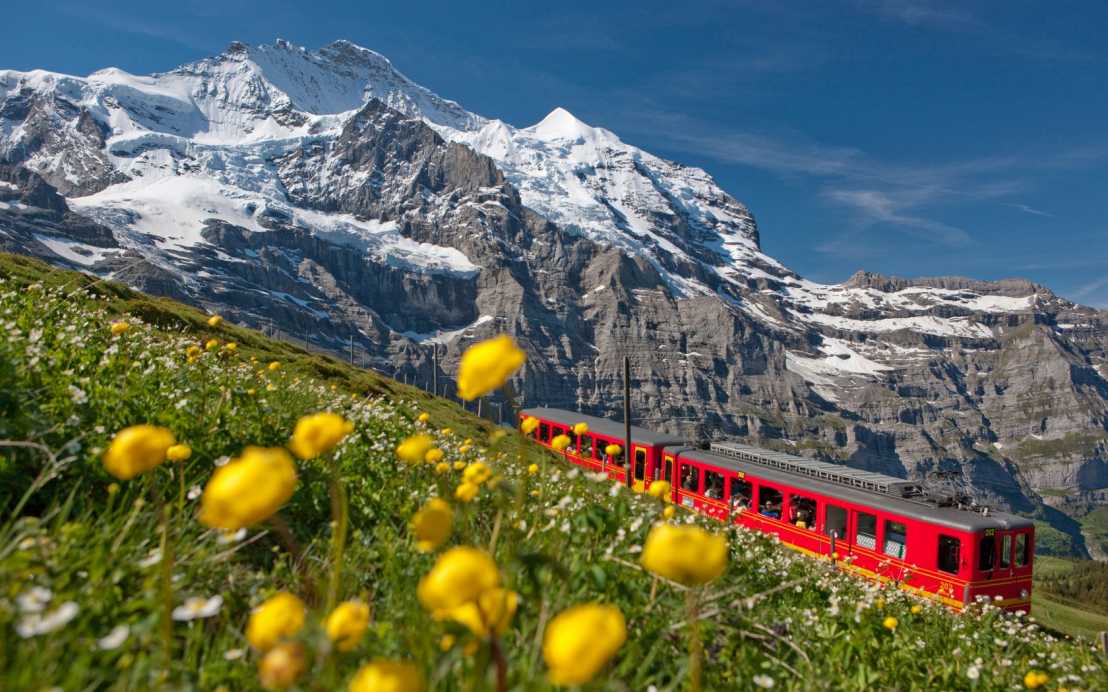RECREATE Switzerland
Assessing future impacts of climate change and the decarbonisation of the mobility and energy sector on outdoor recreation in Switzerland
Introduction

Anticipated population growth, rapid technological development in transportation, climatic change and the transition to domestic renewable energy production in Switzerland are expected to modify the patterns of production and consumption of goods and services in the country. Recreational services are particularly influenced by demographic, climatic, mobility and energy infrastructure changes. It is, however, unclear how such changes will affect recreational landscapes and their potential to attract visitors. Consequently, it is important to understand how these regional and global change drivers will affect demand for Swiss recreation. This project therefore assesses the impact of 1) future mobility modes and policies, 2) anthropogenic climate change as well as changes in natural climatic variability and extreme events and 3) the Swiss energy transition and extension of renewable energies on outdoor recreation demand in Switzerland.
Method
An evaluation on how the spatial demand for recreation changes under future mobility scenarios is necessary. To do so, we assess the correlation between landscape, accessibility and demand for outdoor recreation. We then model changes in the demand for and allocation of outdoor recreation under future mobility scenarios and explore if these changes lead to conflicting land uses.
The supply and demand for recreational landscapes will change under climate change scenarios and related extreme events. Therefore, we simulate the allocation of recreation demand with future climate change and identify the uncertainties and risks for the recreation sector due to changing frequencies and magnitudes of natural variability and extreme events under man-made forcing.
We also analyze how decarbonisation of the Swiss energy sector and the boost of renewables (wind, PV, hydro) will impact both the spatial demand for and supply of recreation under future climatic conditions.
As a transdisciplinary project developed within the Mobility Research Incubator at ISTP, RECREATE Switzerland will contribute to the urgent policy questions as well as to scientific progress with regard to the integrated modelling of environmental and technologically driven systems and their impact on recreational landscapes. We would like to evaluate threats and opportunities of future mobility, the spread of renewables and climate change on the recreational value of our ecosystem and give recommendations on least conflicting and most sustainable solutions for land management.
Duration:
April 2017 – September 2020
Financing:
Institute of Science, Technology and Policy-ISTP
Project Team:
Prof. Dr. Adrienne Grêt-Regamey
Dr. Victor Blanco Gonzalez
Fabian Willibald
Partner Institution:
Institute of Science, Technology and Policy-ISTP
Contact Information: